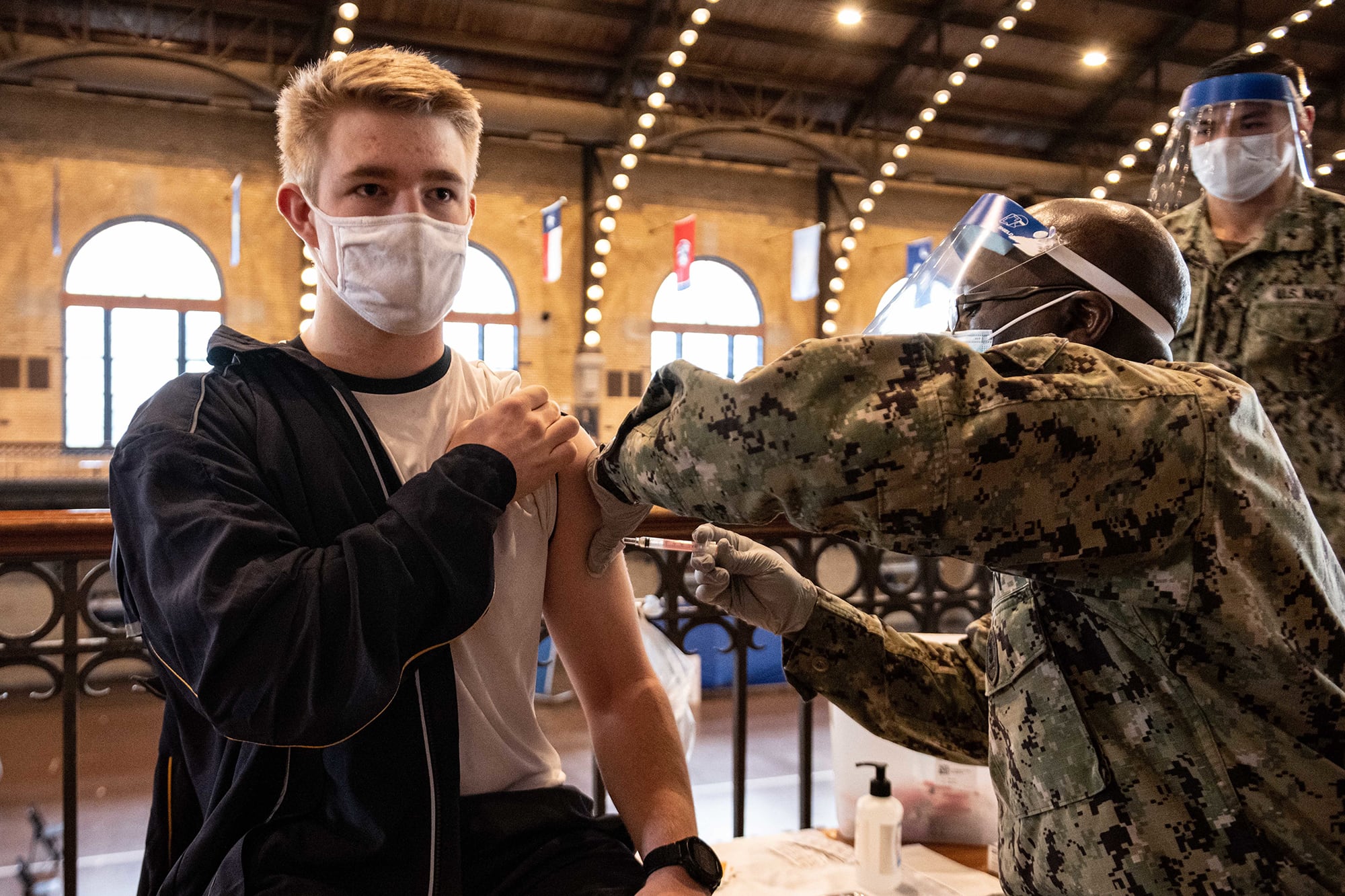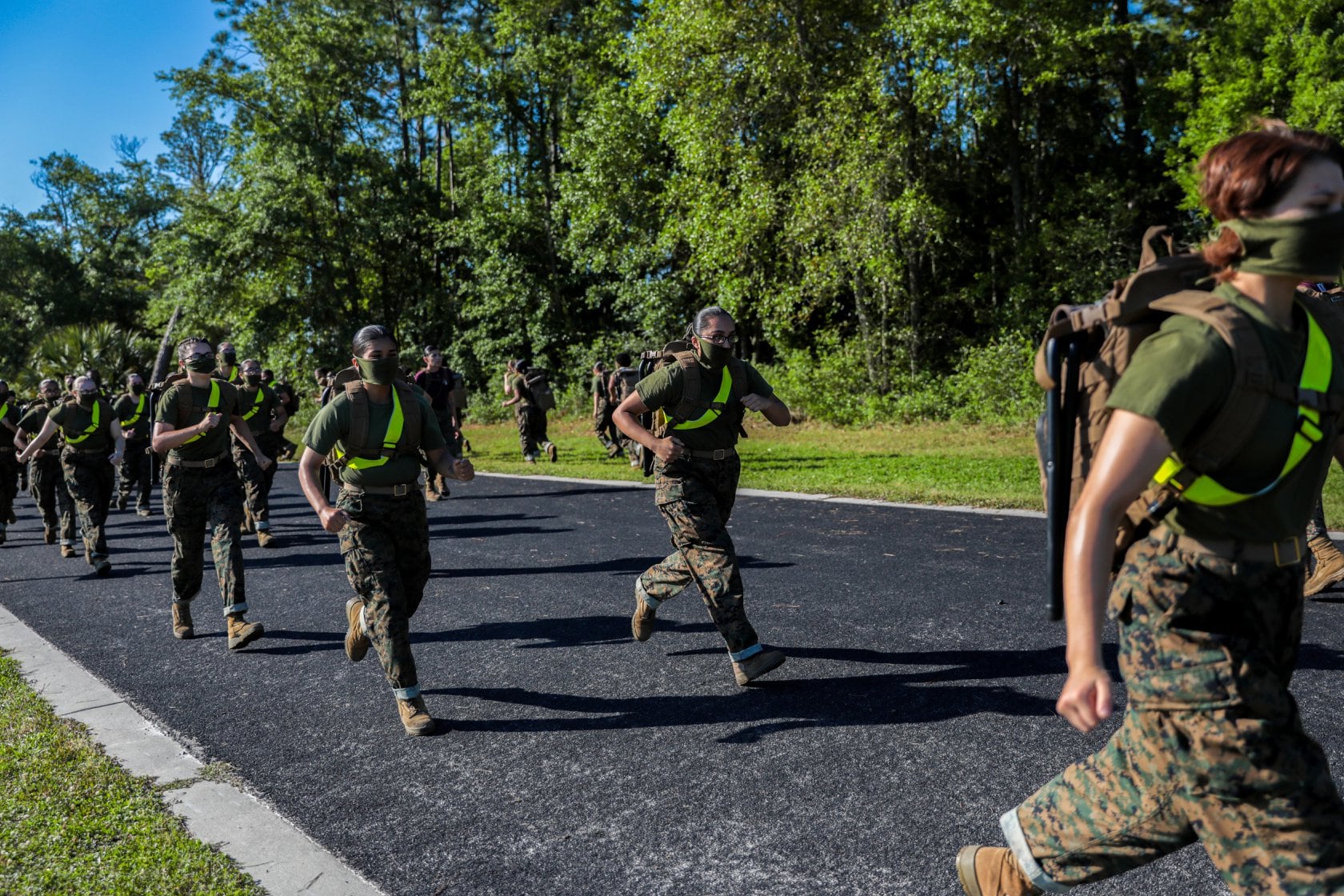Veterans Affairs officials are renewing their call for all eligible Americans to get a coronavirus vaccine as demand for the inoculations has dropped in recent weeks.
More than 2.2 million veterans have been fully vaccinated by the department since December, receiving either both doses of the two-shot vaccination regimen or the single-shot coronavirus vaccine developed by Johnson & Johnson.
VA Secretary Denis McDonough on Monday said that about 60,000 spouses and caregivers and more than 300,000 VA employees and federal partners have also received the vaccines.
RELATED

But officials have seen a significant decrease over the last month, from almost 75,000 vaccine appointments daily across the VA health care system to only about 30,000 now.
“We are seeing some demand lag, consistent with what others are seeing across the country,” he said. “So that underscores the importance of us continuing to make the case for vaccinations.”
At least 11,721 VA patients and 139 VA employees have died from coronavirus complications since the pandemic began in America in March 2020. More than 250,000 patients and nearly 20,000 employees have been infected.
The number of active virus cases across the VA health care system peaked in January at nearly 21,000, but dropped steadily by mid-March to less than one-fifth of that total. Since then, however, case totals have largely plateaued.
Nearly 570,000 Americans have died from coronavirus complications in the last 14 months.
Public health and White House officials have emphasized the importance of mass vaccinations to stop the spread of the virus, and last month lawmakers passed legislation allowing VA officials to provide doses to all veterans, their spouses and caregivers in an effort to help speed that work.
McDonough said that officials are seeing “a steady uptake but still increased hesitancy” towards the vaccine among rural veterans, despite efforts to reduce travel and wait times for that population.
Officials have not identified a reason for that reluctance among rural vets. The VA secretary said he did not think the federally mandated pause in distribution of the Johnson & Johnson vaccine earlier this month caused any lingering concerns among patients.
The Food and Drug Administration and Centers for Disease Control and Prevention halted use of the vaccine for several days after reports of rare blood clots among a small number of patients, but allowed its use to move ahead after a safety review into the medication.
“I think what we’ve see is the pause and the fact that (the government) had a precise dial on what was happening, that has increased confidence, not decreased it,” he said.
RELATED

Medical center staff are also beginning to see an increase in the number of veterans scheduling non-emergency medical appointments. Internal VA appointments were up about 17 percent from February to March, and external health care appointments covered by VA were up about 30 percent over the same time period.
“What you’re seeing across both of those is significant demand, a bow wave kind of manifesting,” McDonough said.
Officials have been promising in recent months that they will be ready for that increased demand on their system, even as pandemic mitigation efforts remain partially in place.
Leo covers Congress, Veterans Affairs and the White House for Military Times. He has covered Washington, D.C. since 2004, focusing on military personnel and veterans policies. His work has earned numerous honors, including a 2009 Polk award, a 2010 National Headliner Award, the IAVA Leadership in Journalism award and the VFW News Media award.





